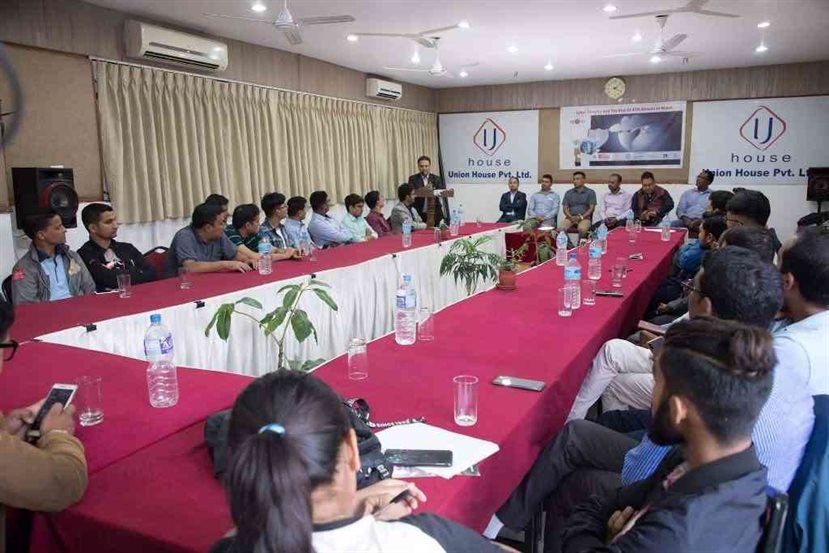Monday, September 9, 2019, Kathmandu
On the interaction of cyber Security and the rise of ATM attack in Nepal held on 8th September at Union House, Anamnagar organized By npCert (Information Security Response Team Nepal In association with Center For Cyber Security Research and Innovation and One Cover Pvt Ltd) experts from cybersecurity shared the measures to be taken from such criminal activities. Most of the ATMs in Nepal remain poorly secured against network attacks such as spoofing the processing center.
Cybersecurity is an emerging technology to defend against hackers and illegal activities. In the present scenario, Nepal IT sector has significant challenges due to the ATM attack on 1st September by the Chinese Nationals. There are several reasons to understand cybersecurity at an individual level for their protection. This technology revolution has become a boon; on the other hand, it has become more vulnerable due to such an attack.
The speakers of the programs addressed the overall issues of Nepal.
NARAYAN KOIRALA, a software engineer, IS Auditor, Entrepreneur
“Nepal being a developing country, doesn’t have that worst scenario on technology and its security. Banking sector of Nepal is continually updating their technology. We can observe high technology advancement in the financial area of Nepal in comparison with other institutes. We are between high and low. The pace of development on security sector is slow, but it doesn’t mean we are behind. Each person is responsible for bringing changes.
DIPESH MASKEY, Senior manager at SCT (Smart Choice Technologies) network
“Technology is ever-growing and attack against automated teller machine are nothing new. Even in developed countries, this kind of activities is taking place. But the question of “WHAT CAN WE DO” is essential instead of blaming financial sectors.
As this is the first high-tech hack in Nepal. The following things can be done to prevent from such attack:
- The domestic card should not be exposed to international transactions.
- The government should continuously monitor and manage security system.
- We lack the fraud management system; an alert system should come into practice.
- Switching system should be controlled.
- Magnetic stripe card is not safe; chip cards should be distributed from the financial sectors.
RIDESH RAI, Network security consultant from PCS for Asian Development Bank
Lack of Awareness, negligence in the management systems are the main problem of the IT sector. Personally, every citizen must be aware of technology and how it functions. In the attack of Nepal, a security guard played a responsible role by informing the suspicious activities of ATM.
Ram Krishna Pariyar, Sr. Network Engineer R & D Subisu Cablenet Pvt. Ltd
Despite having a resourceful workforce in Nepal, we still lack the platform to offer them. Management and technology should go hand by hand. We tend to think only of cost issues rather them support and feature issues. There are a lot of improvements that are to be made; the technical expert can be hired and conduct workshop and create awareness.
Keynote Speaker of the program Mr. Vivek S. Rana said, “The authorities are still unknown what kind of malware attack had happened. It means we are so backward in terms of security and management system. Cyber hygiene programs are necessary for all people.
- Ensuring that routers are firewalls are installed and properly configured or not.
- Ensuring that all anti-virus (AV), spam ware, and other anti-malware protection software is installed correctly and configured
The program was concluded by the chairperson of npCert “Chiranjibi Adhikari” by addressing the current scenario and the IT Management System of Nepal in brief.
